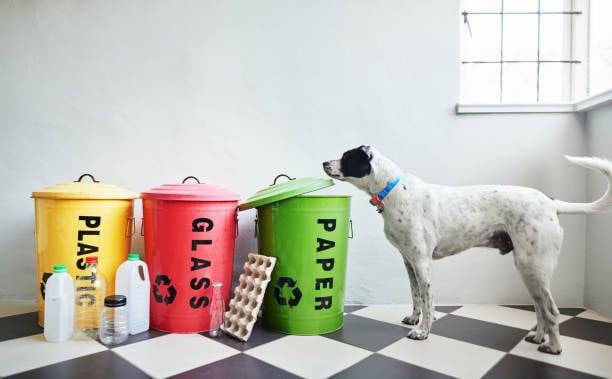The New Challenge in Pet Care
Want to future-proof your pet-care business? Surely, you're no stranger to how things are evolving. Groomers, dog trainers and kennel operators are no longer just providing a service, they are shaping the health, happiness, and sustainability of the most beloved four-legged members of their communities. Pet parents are increasingly discerning, expecting high standards of care, holistic wellness for their dogs, and a commitment to eco-conscious practices.
This presents a dual challenge for pet-care professionals:
- Deliver exceptional wellness care that supports both the physical and emotional needs of dogs.
- Adopt sustainable practices that reduce environmental impact while maintaining profitability.
Balancing these goals can feel overwhelming. You might be asking yourself: How can we meet these rising expectations without stretching staff and resources too thin? The answer lies in combining evidence-based wellness practices with cost-effective sustainability strategies, supported by technology that makes these efforts manageable.

Pet Wellness as the Foundation of Care
Defining Pet Wellness in the Pet-Care Space
Wellness goes far beyond grooming and feeding. For dogs, it includes preventive health, enrichment, stress management, and safe environments. For staff, it means adequate training and support to provide consistent, high-quality care. Broken down into the basics, this looks like:
- Vaccination and Screening Policies: Protecting pets from kennel cough, canine influenza, and parasites is non-negotiable. Clear, enforced policies reduce outbreaks and reassure clients.
- Hygiene Standards: Regular sanitization, proper ventilation, and pest management safeguard both animals and staff.
Enrichment and Mental Stimulation
Dogs in boarding facilities or training programs can experience stress if routines lack variety. Enrichment combats boredom and encourages healthy behavior.
- Examples: Puzzle feeders, nose work games, rotating toys, agility courses, and structured playgroups.
- Impact: Enrichment reduces anxiety-related behaviors like excessive barking, pacing, or chewing.
Nutrition and Physical Health
High-quality diets, fresh water, and portion control are critical. Trainers may integrate nutrition education for owners, while kennels can offer premium food options or consultations with veterinary partners.
Stress-Free Facility Design
- Quiet Spaces: Designating areas for dogs that need rest or separation reduces over-stimulation.
- Noise Management: Soundproofing, white noise machines, or calming music contribute to a calmer environment.
- Climate Control: Adequate ventilation and temperature regulation prevent discomfort and illness.
Staff Wellness and Training
A healthy workforce is key to consistent pet care. Providing ongoing education in animal behavior, stress recognition, and safe handling ensures both staff and dogs thrive.
Mini-Checklist: 5 Immediate Wellness Wins
- Enforce a clear vaccination and health-check policy.
- Add one daily enrichment activity to your program.
- Train staff to identify early signs of stress.
- Offer premium nutrition options or education.
- Create at least one quiet zone for sensitive dogs.

Sustainability in Pet-Care Operations
Why Sustainability Matters in Pet Care
According to a sustainability checklist from the World Pet Association, nearly three-quarters of pet parents surveyed by Rover said they are interested in learning how to live more sustainably with their pets — 81 percent said caring for their pet in an environmentally friendly way matters to them.
Eco-Friendly Operations
- Energy Efficiency: Install LED lighting, programmable thermostats, and efficient HVAC systems.
- Water Conservation: Use low-flow fixtures and recycle greywater where possible.
- Green Cleaning Products: Switch to biodegradable, non-toxic solutions that are safe for pets and staff.
Waste Reduction and Management
Kennels and training facilities generate considerable waste. Transitioning to compostable waste bags, refillable cleaning supplies, and bulk ordering reduces both cost and landfill burden.
Sustainable Retail Opportunities
Offering eco-conscious retail products strengthens revenue while reinforcing your green commitment. Examples include organic treats, recycled-material toys, and refill stations for shampoos or kibble.
Community Engagement and Branding
Sustainability creates powerful marketing stories. Hosting recycling drives, toy swaps, or community clean-up events positions your business as a community leader.
Mini-Checklist: 5 Sustainable Practices That Save Money
- Switch to LED lighting throughout your facility.
- Use bulk or refillable cleaning and grooming supplies.
- Introduce biodegradable poop bags.
- Reduce water usage with low-flow fixtures.
- Offer eco-conscious retail options to pet parents.

Myths and Misconceptions to Bust
In the wellness space, it's important to discern between myth and fact. While many pet lovers may mean well, caregivers know that misinformation can spread quickly — especially on social media – and informing pet parents about the safest and healthiest ways to provide for their pets can establish them as trusted partners in protecting their pups.
Understanding which misconceptions can affect your pet-care business is equally crucial in future-proofing your facility for long-term growth. Let's compare some common myths to facts.
Pet Wellness Myths
Myth 1: Pets only need the vet when sick.
Reality: Preventive exams catch illnesses early, saving lives and reducing costs.
Myth 2: Grooming is cosmetic.
Reality: Grooming prevents matting, infections, and discomfort—it’s integral to wellness.
Myth 3: Indoor pets don’t need vaccines or parasite prevention.
Reality: Even indoor pets can contract illnesses or parasites; prevention is essential.
Myth 4: A dry nose signals illness.
Reality: Nose moisture varies naturally; it’s not a reliable health indicator.
Myth 5: More exercise is always better.
Reality: Over-exercise can cause injuries or stress; balance is key.
Sustainability Myths
Myth 6: Going green is too expensive.
Reality: Many eco-friendly upgrades (like LEDs) pay for themselves through savings.
Myth 7: Eco-friendly products aren’t effective.
Reality: Modern biodegradable cleaning products and supplies perform as well as conventional ones.
Myth 8: Customers don’t care about sustainability.
Reality: Surveys show pet parents—especially millennials and Gen Z—actively choose eco-conscious businesses.
Myth 9: Sustainability equals recycling.
Reality: It also includes energy, water, sourcing, and community engagement.
Practical Tools for Trainers, Groomers, and Kennels
Staff Training Resources
- Certifications in animal behavior, first aid, and enrichment build credibility and improve care quality.
- Regular wellness and sustainability training keeps staff aligned with business goals.
Technology to Support Wellness
- Vaccination Tracking: Digital tools reduce administrative errors.
- Digital Whiteboards: Improve communication across teams and ensure pet needs are met in real time.
- Pet Report Cards: Share enrichment activities and progress with pet parents, reinforcing transparency.
Tools for Sustainability Tracking
- Simple spreadsheets or apps can help measure waste reduction, water use, or energy savings.
- Share progress reports with clients to build trust and accountability.
Communicating Your Efforts
- Highlight green practices on your website, social channels, and facility signage.
- Use myth-busting content in your client communications to educate and engage pet parents.
The Business Case for Wellness and Sustainability
Why It’s Worth the Investment
- Customer Loyalty: Pet parents prefer businesses that reflect their values.
- Operational Savings: Energy-efficient and waste-reducing practices lower expenses.
- Staff Retention: Healthy, motivated employees deliver better care and stay longer.
- Future-Proofing: Businesses adopting these practices now will be better prepared for regulatory changes and shifting consumer demands.

Overcoming the Challenge with Gingr
The challenge is clear: dog trainers and kennels must balance wellness excellence with sustainable operations, all while running profitable businesses. Pet parents expect nothing less.
The good news is that you don’t have to face this challenge alone. With Gingr’s all-in-one pet-care software, you can:
- Track vaccinations and wellness requirements automatically.
- Streamline staff communication with tools like the facility calendar and digital whiteboard.
- Offer seamless customer experiences through the customer portal, where clients can view report cards and book eco-conscious services.
- Simplify record-keeping, allowing you to measure and showcase your sustainability and wellness initiatives with confidence.
By pairing evidence-based practices with the right technology, your kennel or training business can stand out as a leader in pet wellness and sustainability. The future of pet care belongs to those who can deliver both—and with Gingr, you can meet that challenge head-on. Book a demo with Gingr today!
Subscribe to the Gingr Blog







